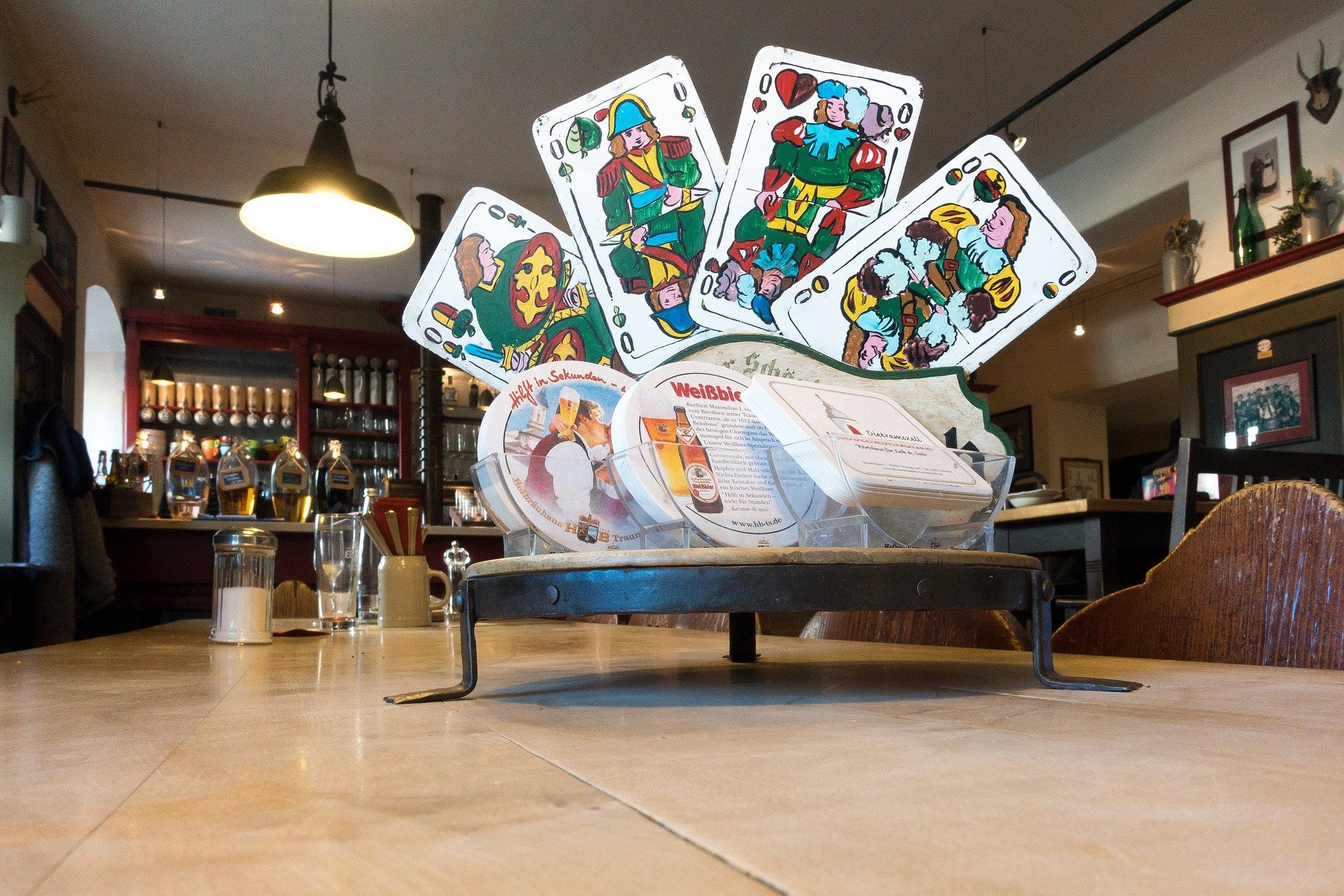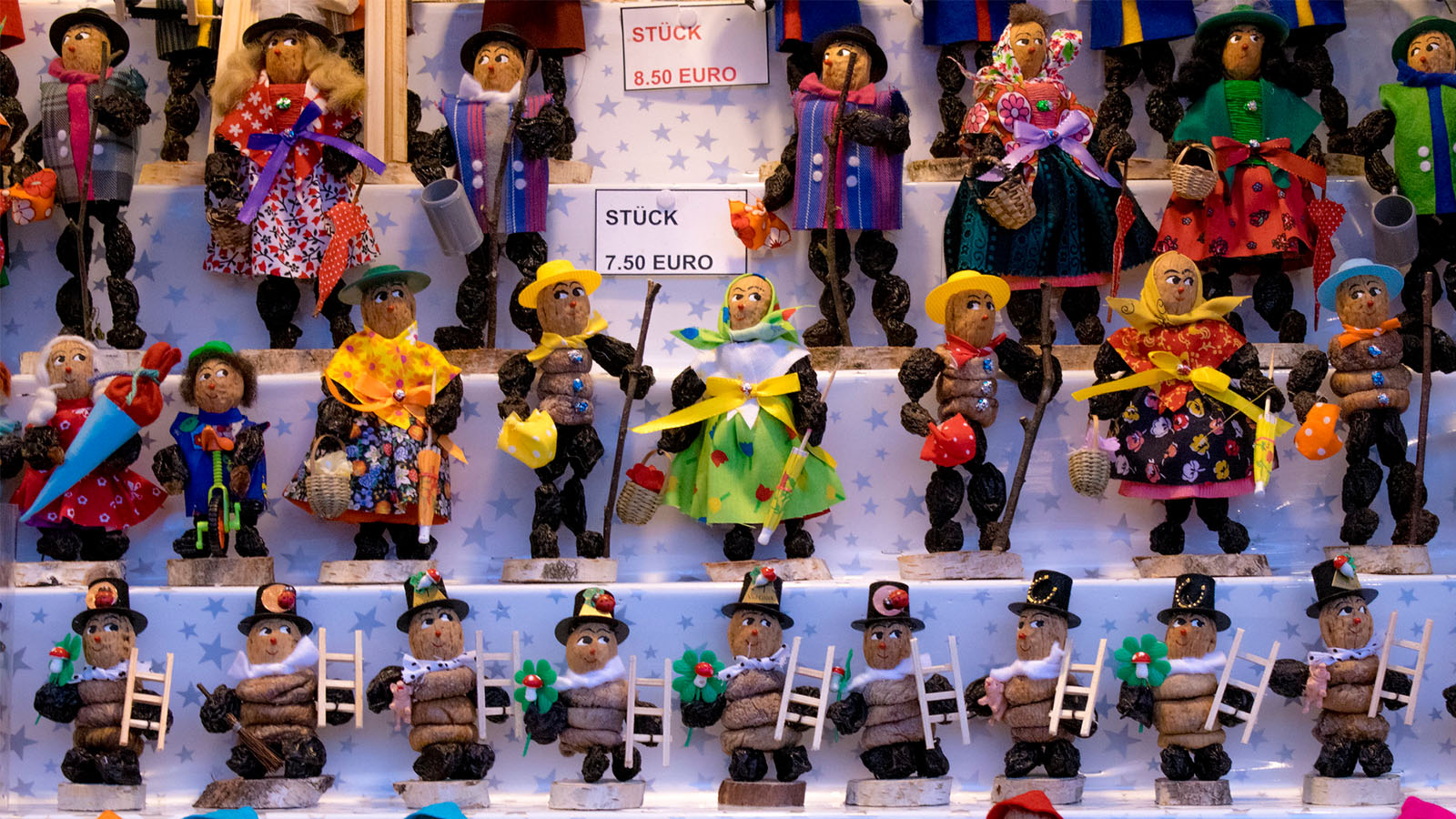Schdammdisch /ʒdʌm – dɪʒ/
Hochdeutsch: Stammtisch
English: regulars‘ table
People who have visited a couple of German Gasthäuser might have, by now, noticed that especially in the more rural areas and on middays to afternoons, there usually is a table where nobody is seated. The room might be full and almost bursting, and yet, nobody is allowed to sit at this one special table, oftentimes sporting a little sign with the word “Stammtisch” on it.
These tables are indeed special. They are the tables for the serious customers, not the riffraff that might pop in once or twice a year. It is the holy ground of the regulars, those thirsty men and women who could quite probably keep a pub afloat all by themselves, and therefore deserve a place they can call their own in order to keep them there. In Franconia, these customers usually consist of elderly gentlemen who are quite friendly in their own way (“Die Saupreißn gönna scho lustich saa, wenn’s wolln” [Foreigners can be funny if they want to be]); that is, until the beer kicks in, and they gradually form firmer opinions (“Die Mergl muss wech” [Merkel has to leave], “Früah woar alles bessa” [Everything was better in the good old days,] and so on), most of the time voicing these opinions so loudly that everyone in the Gasthaus can hear it.
The word itself derives from Stamm, meaning tribe, and Tisch, which I hopefully will not have to explain. With Germany becoming a united country, and especially old people clinging to their old ways, it is quite possible that the Schdammdisch (remember, Franconians do not know the difference between a T and a D) has become a sort of substitute for the lost coherence of the former tribesmen and -women.
Becoming part of such a Schdammdisch is a matter of knowing the right people, thinking the right thoughts, behaving in the right way and being able to drink the right amount of beer, Weizen, Schnaps, whiskey or whatever the old boys are up to these days. Since a Schdammdisch is a sort of minified tribe, expect to either get a very rough welcome or an even rougher refusal, as they cannot allow just anybody to join their ranks. (At least, that is what they like to think.)
It has to be said that most British people have a very similar tradition, possibly dating back to the days of King Arthur and his round table, though these men at least had the future and well-being of their country in mind, and probably cussed and grumbled far less.
On this note, the English Post Franconia team are now organizing the English Stammtisch Nuremberg themselves, which thankfully does not consist of elderly and grumbling people, though you might find a couple of those as well. Quite opposite to the Franconians, we are very open-minded and welcome everyone to take part in the various activities we are planning for the coming weeks and months. If you want to practice your English, find new friends and drinking buddies or just don’t know what else to do, feel free to come by and have a nice chat with bona fide English speakers and other people from around the world.















